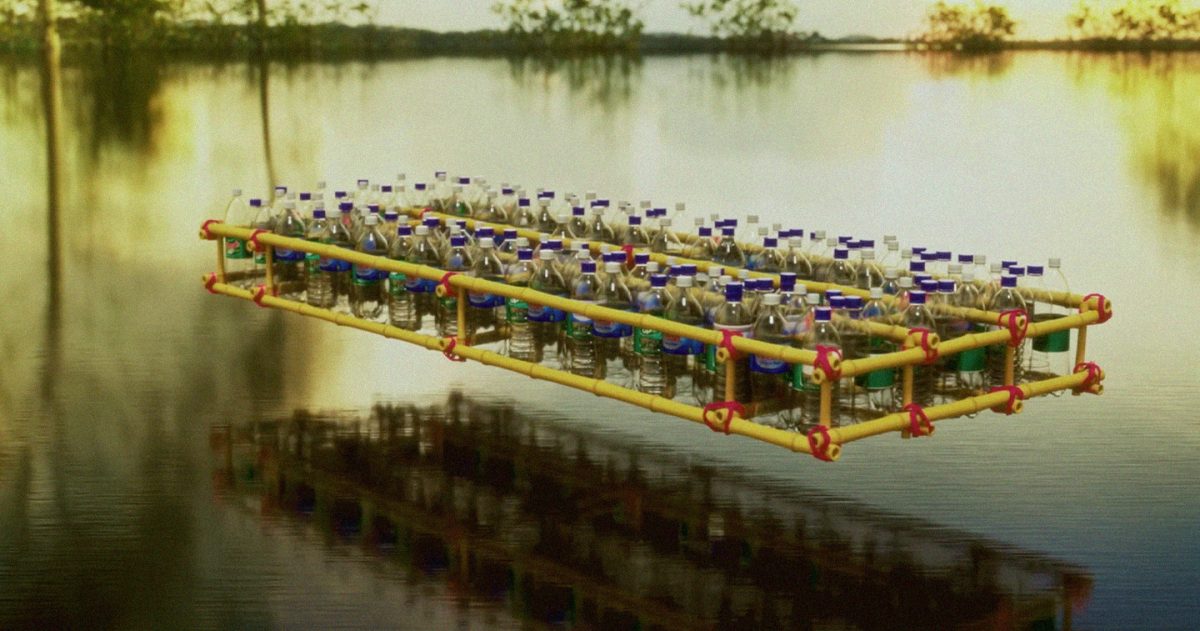DHAKA, BANGLADESH — Bangladesh faces multiple challenges due to climate change and environmental degradation. One of the most pressing issues is the loss of agricultural land due to rising water levels and floods. According to the Dhaka Tribune, there are over four million landless farmers in the country who struggle to find livelihoods and food security. Moreover, Bangladesh ranks 10th in the world in terms of mismanagement of plastic waste. This not only harms aquatic life but also contributes to global warming.
The Meghna Group of Industries (MGI), a conglomerate that has products that contribute to plastic pollution, felt it was its responsibility to help change this situation. After two years of research, it found that plastic-eating fungi can take care of potential microplastic and invented a new farming process that uses plastic waste as a resource. Finally creating “Plastic Farming,” an initiative to turn plastic waste into floating farms.
To spread the project, it partnered up with Bidyanondo, a voluntary organization that brought the landless farmers together, and the local government’s agriculture officers who taught the conglomerate the process of Plastic Farming. Together, they taught farmers how to collect plastic from water bodies and use simple bamboo frames, the collected bottles, water hyacinth, and crop seeds to begin Plastic Farming.
Initially, over 500 farmers around Pirojpur and Gopalganj were taught about Plastic Farming. Then nationwide activations, a free website, video tutorials and manuals attached to MGI products were released to help other farmers. To take care of any potential microplastic, the farmers were shown how to release fungi around the sites.
The project had a positive impact on the lives of the farmers and the environment. It collected 187 tons of plastic waste, created 47,332 floating beds across 192 villages, and held 117 training sessions both online and offline. MGI also trained 19,232 farmers hands-on and in turn the farmers produced 2,25,000 kilograms of vegetables through Plastic Farming in six months.
The initiative enabled over 2.5 million acres of potential farmland, increased the nation’s productivity, strengthened food security, and changed agricultural norms.
MGI’s Plastic Farming is an example of how a brand can take responsibility for its environmental impact and create a solution that benefits both the people and the planet. It is a testament to the power of innovation and collaboration to tackle the challenges of the 21st century.
To learn more about the project, you can visit www.plasticfarming.com.








